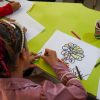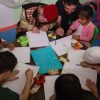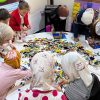

Home » أكثر من 212 ألف نازح بحاجة لتدخل عاجل في ريف إدلب






For more information, visit or contact us:
Topkapı mah, Çayır Meydanı Cd.
No:123 D:Kat: 03, 34093 Fatih
Istanbul – Turkey
[email protected]
Fax: +90 212 263 41 75
